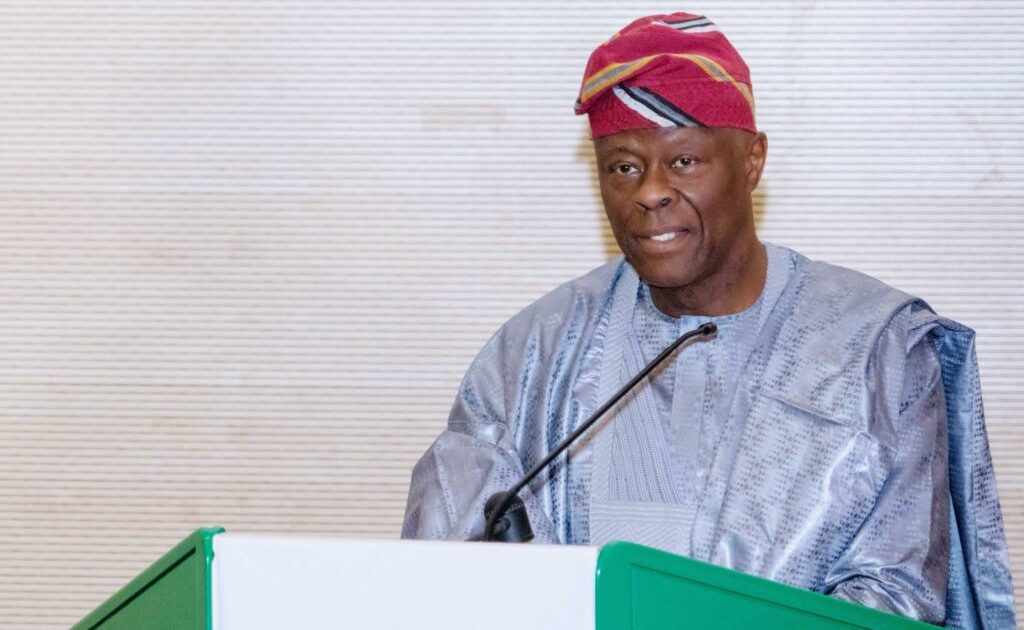The Nigerian government has initiated a proactive response to the potential economic fallout from recent US trade tariffs and fluctuating global commodity prices. Recognizing the interconnectedness of global markets and the potential for indirect impacts on the Nigerian economy, the Economic Management Team (EMT), chaired by the Minister of Finance and Coordinating Minister of the Economy, Mr. Wale Edun, convened a meeting to assess the situation. Although Nigeria’s primary export, crude oil, was not directly targeted by the tariffs, the EMT acknowledged the subsequent decline in international oil prices, a development with significant implications for Nigeria’s fiscal stability. This proactive approach underscores the government’s commitment to evidence-based policymaking and its dedication to mitigating potential risks to the nation’s economic well-being.
The EMT’s immediate action was the formation of a dedicated subcommittee tasked with conducting a comprehensive review of the economic ramifications stemming from the US tariffs and the volatile global commodity market. This subcommittee comprises representatives from key economic ministries and agencies, including the Federal Ministry of Finance, the Ministry of Budget and Economic Planning (including the Budget Office of the Federation), and the Central Bank of Nigeria. This collaborative approach ensures a holistic assessment, drawing on expertise from various sectors of economic governance. The subcommittee’s mandate is to expeditiously analyze the situation and present its findings to the full EMT, enabling prompt and informed policy decisions.
The urgency of the situation is underscored by the recent decline in global oil prices, falling below Nigeria’s fiscal breakeven point of approximately $60 per barrel. This decline, partly attributed to the US tariff announcements and the ensuing global economic uncertainty, poses a significant threat to Nigeria’s fiscal balance. A sustained period of low oil prices could lead to a current account deficit and weaken the Nigerian naira, impacting the country’s ability to import essential goods and services. Furthermore, global financial institutions, such as JP Morgan, have warned of potential declines in foreign portfolio investment due to global uncertainties, further highlighting the need for a swift and effective response from the Nigerian government.
The potential economic repercussions for Nigeria are multi-faceted. Lower oil prices directly impact government revenue, as oil exports constitute a significant portion of the nation’s income. This reduced revenue stream can constrain government spending on crucial social programs and infrastructure development. Moreover, a weaker naira can lead to inflationary pressures, increasing the cost of imported goods and potentially eroding the purchasing power of Nigerian citizens. The potential decline in foreign portfolio investment could further exacerbate the situation, limiting access to crucial capital for businesses and hindering economic growth.
The subcommittee’s analysis will likely consider a range of factors, including the duration and extent of the oil price decline, the potential impact on other sectors of the Nigerian economy, and the effectiveness of various policy responses. The subcommittee’s findings will be crucial in informing the government’s strategy for navigating the current economic volatility. Potential policy responses could include fiscal adjustments to address the revenue shortfall, monetary policy interventions to stabilize the naira, and measures to attract foreign investment and diversify the Nigerian economy.
The establishment of the subcommittee demonstrates the Nigerian government’s commitment to proactive economic management in the face of global challenges. The rapid response and the inclusion of key economic agencies reflect a recognition of the potential severity of the situation and the need for a coordinated and well-informed approach. The subcommittee’s forthcoming report will be instrumental in shaping Nigeria’s economic strategy, aiming to mitigate the negative impacts of global economic headwinds and ensure the nation’s continued economic stability and growth. The government’s proactive stance signals a commitment to safeguarding the Nigerian economy and the well-being of its citizens amidst a complex and evolving global landscape.














